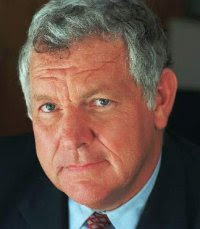
I still love your radio show Dr. Bennett. My ex-wife and her boyfriend were nice enough to send me a video tape of my son's pee-wee football game (since the lawyers all agreed I can't attend in person). And so I watched the tape of my son's football game with the nyquil I bought beforehand and I fell into the bottom of a deep and upturned water well in the sky, far above and at the height of airplanes. I found myself watching the game forgetting the particulars and simply observing the line of scrimmage as it formed and reformed at the beginning and ending of each play of the long game. The pure form of it and the repetitive/alternating stillness and entanglements of that line. So I woke up this morning and the sun was already out and the tape ran out but somewhere the game's still going.
Also Dr. Bennett, When I brought the nyquil to the checkout counter, the pregnant teenager behind the counter asked if I'd been crying, I said "no" of course but later on and throughout the night I talked to myself in my empty motel room while pretending I was confessing everything to her. I had a dream later in the night in which I followed the pregnant teenager and her boyfriend in the mall, closely and unseen, as a body-less spirit. She was chiding her boyfriend for having "killed her brother" in a manner that wasn't too casual yet not exactly marked by trauma. The peculiar incongruity of her tone of voice was un-captured by my memory but I hope it comes back to me. You know those type of terrifying bright yet freezing winter days? In which it's as though the sun itself is emitting the cold? I think that her peculiar tone of voice will somehow come back to me on a day like that, if ever.
Also Dr. Bennett, When I brought the nyquil to the checkout counter, the pregnant teenager behind the counter asked if I'd been crying, I said "no" of course but later on and throughout the night I talked to myself in my empty motel room while pretending I was confessing everything to her. I had a dream later in the night in which I followed the pregnant teenager and her boyfriend in the mall, closely and unseen, as a body-less spirit. She was chiding her boyfriend for having "killed her brother" in a manner that wasn't too casual yet not exactly marked by trauma. The peculiar incongruity of her tone of voice was un-captured by my memory but I hope it comes back to me. You know those type of terrifying bright yet freezing winter days? In which it's as though the sun itself is emitting the cold? I think that her peculiar tone of voice will somehow come back to me on a day like that, if ever.


